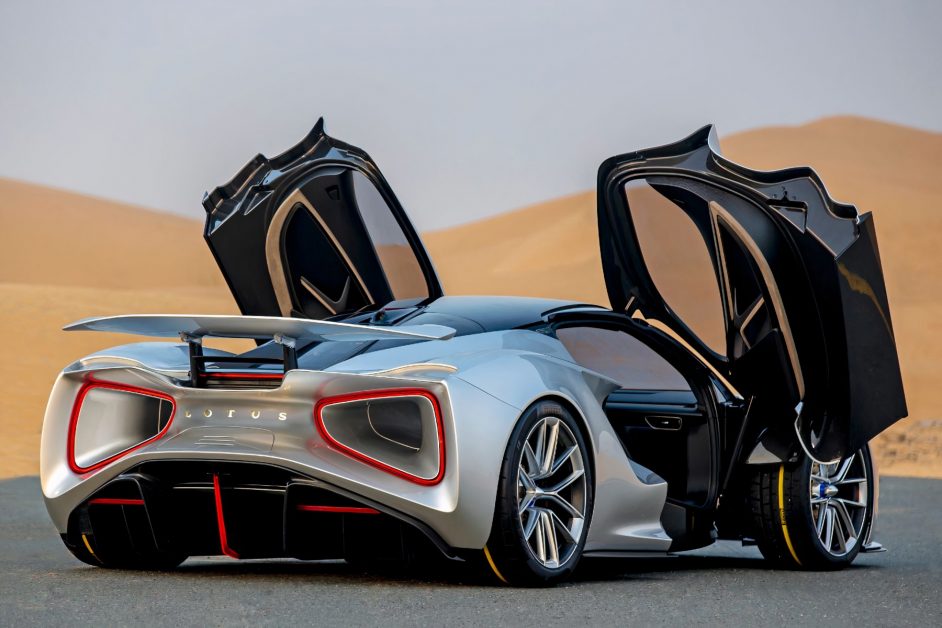Yibai Insights
Explore the latest trends, news, and insights from around the world.
Shockingly Fun: Why Electric Cars Are the Future of Driving
Discover why electric cars are revolutionizing the roads! Uncover the fun, benefits, and future of driving in our electrifying blog post!
The Surprising Benefits of Electric Cars: Why You Should Make the Switch
As the automotive industry continues to evolve, electric cars offer a plethora of benefits that often go unnoticed. Not only do they contribute to a cleaner environment by reducing greenhouse gas emissions, but they also provide significant cost savings for drivers. For instance, electric vehicles (EVs) can lead to lower fuel and maintenance costs, with studies showing that EV owners can save an average of $4,600 over 15 years compared to traditional gasoline vehicles. Additionally, incentives such as tax credits and rebates make the initial investment more appealing. For more information on the financial benefits of electric cars, check out this article from the U.S. Department of Energy.
In addition to economic advantages, electric cars are known for their contribution to enhanced driving experiences. With instant torque, EVs provide a smooth and quick acceleration that can be exhilarating to drivers. Furthermore, the quiet operation of electric motors leads to less noise pollution, creating a more serene environment both inside and outside the vehicle. As more cities focus on reducing urban noise, this characteristic becomes a significant perk. For detailed insights into the driving experience of electric vehicles, explore this piece by Edmunds.

Are Electric Cars Really Better for the Environment? Unpacking the Myths
As the popularity of electric vehicles (EVs) continues to grow, many consumers are left questioning: Are electric cars really better for the environment? The short answer is that while EVs do have numerous advantages, the environmental impact is more complex than it appears. Electric cars produce zero tailpipe emissions, significantly reducing air pollution in urban areas. However, it's essential to consider the entire lifecycle of the vehicle. For instance, manufacturing electric cars often requires more energy and resources than traditional gasoline vehicles, particularly due to the production of lithium-ion batteries.
Moreover, the environmental benefits of electric cars heavily depend on the source of the electricity that powers them. If EVs are charged using renewable energy, their overall carbon footprint can be significantly lower than that of gasoline cars. However, in regions where electricity is primarily generated from fossil fuels, the environmental advantages diminish. Therefore, while electric cars offer a promising pathway to reducing emissions, it's crucial to look beyond the vehicle itself and consider the broader context of energy production and consumption. In summary, when asking if electric cars are better for the environment, the answer is nuanced and requires looking at various factors, including manufacturing, battery disposal, and energy sources.
How Electric Cars are Revolutionizing the Driving Experience: What You Need to Know
Electric cars are revolutionizing the driving experience by offering a blend of innovation, sustainability, and convenience that traditional vehicles simply cannot match. With the rise of efficient battery technology, electric vehicles (EVs) now provide impressive ranges on a single charge, often exceeding that of their gasoline counterparts. According to a report from the U.S. Department of Energy, the average electric car can travel more than 250 miles per charge, making them suitable for both daily commuting and longer trips. Additionally, the instant torque delivered by electric motors provides drivers with a thrilling acceleration experience, making driving more enjoyable and responsive.
Moreover, the benefits of electric cars extend beyond performance; they also promote a cleaner environment by reducing greenhouse gas emissions. Many cities are investing in EV infrastructure, such as charging stations, to make owning an electric vehicle more practical than ever. For further information on the impact of electric vehicles on emissions, you can refer to the Guardian's environmental analysis. As electric cars become more mainstream, consumers can expect greater variety, improved technology, and a more connected driving experience that integrates seamlessly with modern lifestyles.